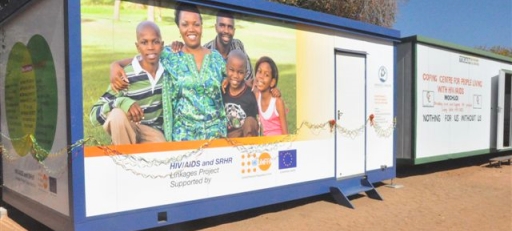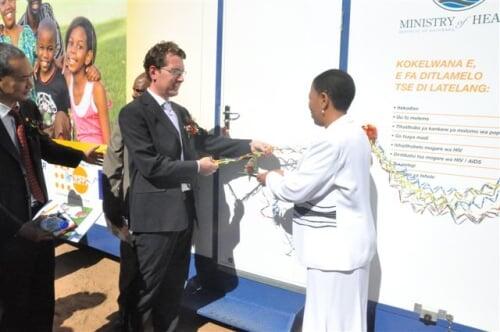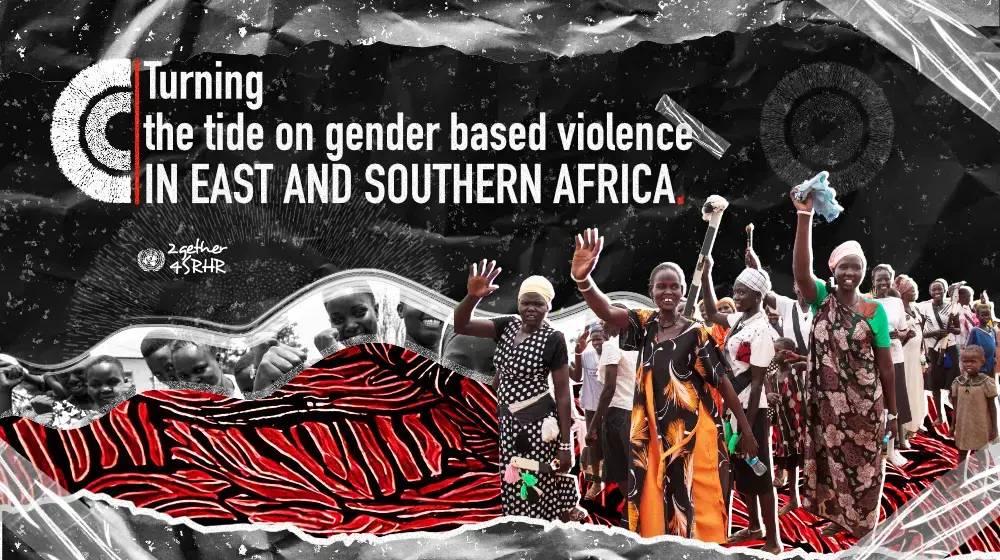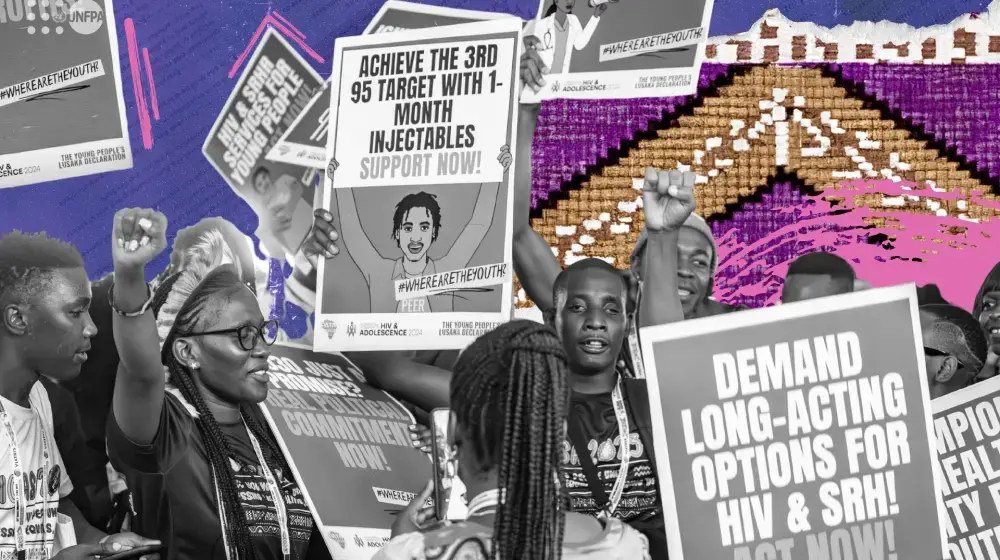MOCHUDI, Botswana — Countries that are integrating their HIV and sexual and reproductive health and rights (SRHR) services are seeing an increase in the use of contraception, an increase in HIV testing and a decrease in stigma and discrimination.
All of this is also clearly connected to progress on the Millennium Development Goals and the reduction of maternal mortality, child mortality and HIV/AIDS, said by Rigo Belpaire, head of Botswana/EU Operations, at a ceremony to hand over medical equipment in Mochudi, Botswana.
The handover included two colourful porta-cabins which would provide more space at Mochudi Clinic 1 and Otse Health post in Mahalapye, plus medical equipment such as examination lamps, medicine trolleys and electronic suction machines, as well as office furniture and stationery.
These were donated to the district for the European Union-funded SRHR and HIV Linkages Project, which is being piloted in seven countries in Southern Africa with support from the United Nations Population Fund (UNFPA) and UNAIDS.
The project’s overall aim is to help these countries overcome barriers to strengthening linkages between SRHR and HIV policies, programmes and services.
A change in mindsets

The event marked a witnessing of the first steps in a very important change of mindsets and in a process of change, Mr. Belpaire said. “In 1994, the HIV & AIDS pandemic had only started its devastating worldwide trajectory, but since then we have had to wake up to the fact that HIV and sexual and reproductive health and rights [must be] intimately linked, if we are to successfully deal with either of them.”
Many health systems have been structured around specific diseases or conditions, yet human beings are not an assembly of disease-specific building blocks, he said. “Our health is not organized by departments. A woman can be breast-feeding, be HIV-positive, be receiving anti-retroviral treatment, have cervical cancer and be in need of contraceptives all at the same time.” Another problem is the emphasis on curative services, whereas prevention is better and much cheaper than cure.“The linkages project tries to find a methodology that can deal with these challenges.”
'One-stop shop’ for reproductive health
With programmes in seven countries in sub-Saharan Africa, the project is funded by the European Union and implemented by the countries’ respective Ministries of Health. It creates a ‘one-stop shop’ for reproductive health. “That means that the woman I spoke about earlier would be meeting and engaging with one single nurse for all her needs, instead of seeing one person for contraceptives, one for doing a test for cervical cancer, then queueing for ART and finally seeing a mid-wife to get advice on breast-feeding,” he said.
This rather different way of working is at first challenging for staff, who would have to learn how to take on more and more complex tasks. However, most testify that it is much more rewarding and interesting to work in an integrated way, he said. "Their working conditions are improved as queues get shorter. Finally, integration of services makes economic sense, as there is only need for one room and one person to deal with all the different needs of the care-seeker."
A key success factor in the project has proven to be the support of the Ministries of Health. "Changing working methodologies and behaviour takes determination and perseverance, but I hope that this project and its emerging conclusions will reinforce your stead-fast commitment to linkages and integration of services," he added.




